China’s role as mediator and what it means for Bangladesh

China achieved an unprecedented diplomatic breakthrough by mediating the Saudi-Iranian rapprochement, whereby both parties agreed to restore diplomatic relations and resume direct flights between their two nations. Although, to some experts, this deal may come as a surprise, China's stride towards taking up the mantle as a mediator has been in the works for the past two decades.
The Chinese principle of mediation
China uses the Confucian approach of "harmony as the instrumentality" to resolve disputes through moral persuasion and consultation, rather than coercion. Under such a context, Chinese foreign policy has developed persuading for peace and promoting dialogues towards regional conflict. Based on this, China strives to protect its economic interest, desire to raise its international stature, and a recognition of its responsibilities as a rising power. Thus, the core principle of China's foreign policy is non-interference. Under such light, facilitation and mediation is adopted by China tethering its image as the "mediator".
China's role as the 'mediator'
Although China's mediation effort increased from 2013 (when the Belt and Road Initiative was launched), it had been running its course prior for quite some time. In 2002, China established a special envoy for issues in the Middle East, the primary purpose having been to contribute to the resolution of Palestinian-Israeli and Arab-Israeli conflicts. In 2004, during the Darfur crisis, it appointed a special envoy for African affairs, aimed to exert quiet pressure on the Sudanese regime to improve the humanitarian situation in Darfur, cease the killing, and work to resolve the crisis. Chinese mediation efforts from President Hu Jintao and then-Vice President Xi Jinping eventually persuaded Sudan to cooperate with the international community, and consent to a UN peacekeeping force in Darfur.
China conducts its diplomatic engagement through three cooperation forums: the Forum on China-Africa Cooperation (FOCAC), the China-Arab States Cooperation Forum (CASCF), and the Shanghai Cooperation Organization (SCO). These organisations are China's primary multilateral coordination mechanisms for political, economic, and security interactions.
Where does Bangladesh stand?
Bangladesh is an important geostrategic region in South Asia as it sits right between Southeast Asia and South Asia. Furthermore, it's a getaway to a market of an estimated 3.5 billion people, making the country an economic and commercial hub. As part of China's larger geopolitical scheme, Bangladesh formally entered the BRI in 2015. The following year, Chinese President Xi Jinping's historic visit to Dhaka took Bangladesh-China relations to a new height. Safe to say, Bangladesh is an important ally to China. This is further proven by the fact that China has granted Bangladesh duty-free access to 97 percent of tariff products under the duty-free and quota-free scheme.
China is also the biggest foreign investor in Bangladesh, in addition to the latter being the second-largest recipient of Chinese funds in South Asia, following Pakistan. Besides being a development partner, China has taken up the role of a mediator in the Rohingya refugee crisis, too. Although the crisis has not yet reached a conclusive settlement, China is still considered the primary actor for facilitating an agreement between Bangladesh and Myanmar. China has offered the "three-phase solution", which is a trilateral initiative among Bangladesh-Myanmar-China.
However, China's endeavour mustn't be viewed in an unalloyed light. Although it arranged three meetings from 2018 to 2020 between Bangladesh and Myanmar, no apparent development has been seen. Moreover, the 2021 coup, leading to a socio-political chaos resulting in a civil war and sudden surge in Covid-19 cases across Myanmar, has stockpiled more complexities onto an already strenuous mediation process. Besides, critics have called out China for blocking the UN Security Council from issuing a statement of concern over violence across Myanmar. Despite the growing frustration and ongoing stalemate, China's role as a mediator has enough teeth in conflict resolution. As for Bangladesh, embracing a cautious but optimistic approach will fare well. However, the country must tread carefully in the "new great game", which is expected to be centred around Asia, if it wants to reap its benefits.
SN Sharmily is currently pursuing an undergraduate degree in International Relations from the University of Dhaka.

 For all latest news, follow The Daily Star's Google News channel.
For all latest news, follow The Daily Star's Google News channel. 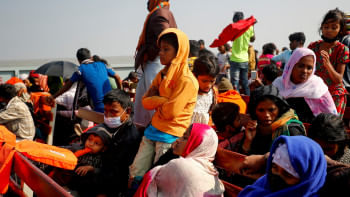
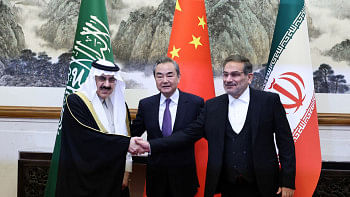
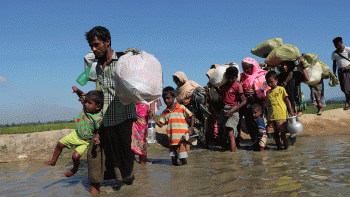


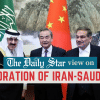


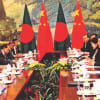



Comments